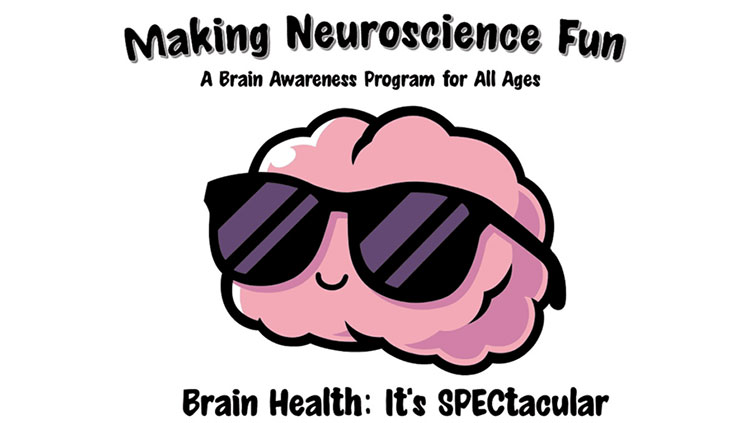Explain Neuroscience with the Ten Hundred Most Common Words
- Published8 Apr 2019
- Author Emma Lindberg
- Source BrainFacts/SfN

Synopsis
The best way to describe a microwave is an electric oven that heats food using electromagnetic radiation, but what if you could only use a small collection of the most common words to tell someone what it is? Then you might describe a microwave as “a food-heating radio box.”
When you limit yourself to a small pool of words, you have to get creative with descriptions. Randall Munroe did just that in his book Thing Explainer: Complicated Stuff in Simple Words. Munroe challenged himself to explain complicated subjects by only using the thousand most common words in the English language. Or as Munroe puts it the “ten hundred” most common words (since funnily enough, the word thousand doesn’t make the cut).
Using this list of the one thousand most common words, ask your students to explain a neuroscience concept. Sample concepts and vocabulary words are listed below.
Integration into the Curriculum
- Health
- Biology, AP Biology
- Anatomy and Physiology
Instructions
- Show your students the “Up Goer Five” text editor. This can be projected, viewed on a tablet, or printed out.
- Point out some of the odd descriptions used on the sample, such as referring to landing gear as “feet that go on the ground of the other world.”
- Explain to your students that the author of this picture only used the one thousand most common words in the English language.
- Provide each of your students with one of the suggested neuroscience concepts or vocabulary words below or create your own.
- Give your students time to study the concept or vocabulary word then challenge them to rewrite it using the list of one thousand most common words. It may be easier for some students to have the list printed out for them. http://splasho.com/upgoer5/phpspellcheck/dictionaries/1000.dicin
- Optional: similar to the “Up Goer Five” students can draw and label their concept or vocabulary word.
Sample Concept – Dendrite
Textbook definition: A dendrite is a tree-like extension of the neuron cell body. The dendrite is the primary site for receiving and integrating information from other neurons.
One thousand most common words definition: The tree-like arms of brain cells; they are the most important place for getting and learning facts from other brain cells.
Suggested Neuroscience Concepts and Vocabulary
- Axon: An axon is the fiber-like extension of a neuron by which it sends information to target cells.
- Electroencephalography (EEG): a technology used to record the electrical activity of the human brain in response to a variety of stimuli and activities.
- Neurotransmitter receptors: proteins embedded in the postsynaptic cell membrane that bind neurotransmitters to alter the cell’s excitability.
- Plasticity: the ability of the brain to modify its neural connections to adapt to challenges in the environment.
- Amnesia: a memory impairment usually caused by brain damage or disease, or by drugs such as some anesthetics.
- Dementia: a decline in cognitive ability that interferes with day-to-day functioning.
- Reuptake: the process by which released neurotransmitters are absorbed for later reuse.
- Stress: any external stimulus that threatens homeostasis. Many kinds of stress have a negative effect on the body, but some stress can be helpful.
- Working Memory: a temporary type of declarative memory, the ability to keep a piece of information “in mind.”
- Cones: a primary receptor cell for vision located in the retina. It is sensitive to color and is used primarily for daytime vision.
CONTENT PROVIDED BY
BrainFacts/SfN
Also In Teaching Techniques
Trending
Popular articles on BrainFacts.org













